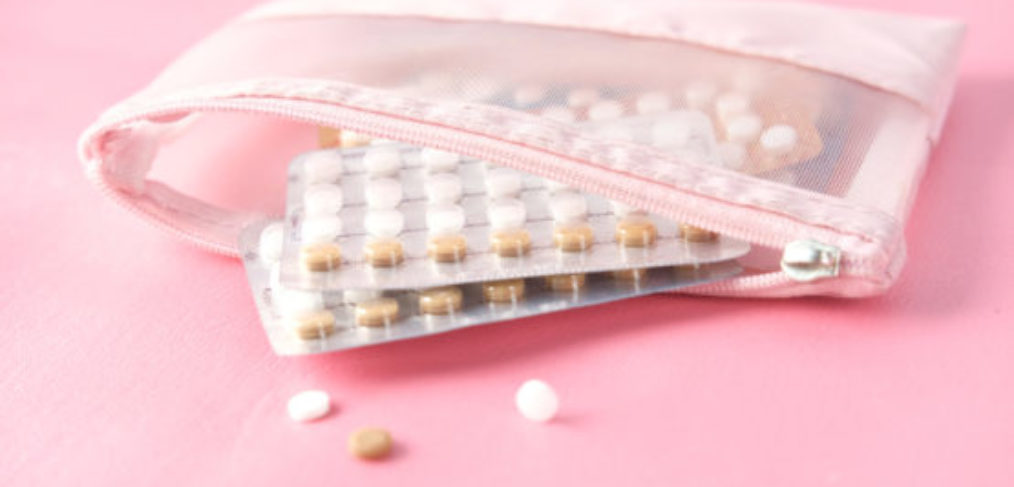Birth Control Pills + Hashimoto’s

For many women, taking an oral contraceptive makes sense.
They allow a cycle to be regulated, can reduce PMS symptoms and of course, prevent pregnancy.
But are there any downsides?
Beyond the warnings in the small print that we may tend to overlook, the rare but serious complications such as heart attack, stroke, blood clots, and liver tumors (1), there are other concerns that are not often discussed.
Specifically, the correlation between birth control pills and thyroid function.
23.5 million Americans, suffer from an autoimmune disease, and the prevalence is rising (2).
Hashimoto’s disease is one such autoimmune disorder in which the immune system creates antibodies that attack thyroid cells as if they were bacteria, viruses or some other foreign body. The immune system wrongly enlists disease-fighting agents that damage cells and lead to cell death (3).
Longer history of taking birth control pills was strongly associated with hypothyroidism, which can be caused by Hashimoto’s, especially of more than 10 years (4).
Finally, approximately 1 in 8 women will be affected by a thyroid condition at some point in their lives. The risk for women is about 10 times higher than for men (5).
How many young women, or women of any age for that matter, are provided this information when their doctor presents taking the pill as the best option?
Granted, the ability to prevent unplanned pregnancy is one example of the benefits of modern medicine we have, but in an ideal world, all the cost would be presented to each and every woman along with the benefit.
Add to that there are other risk factors that may contribute to thyroid disfunction, including toxin exposure (mold, heavy metals and chemical), leaky gut and nutrient deficiencies.
With regard to thyroid function, the good news is that many types of hypothyroidism can be reversed. The process may not be simple, but it is possible. Even some cases of so-called “permanent” hypothyroidism can be effectively treated (6).
Care to take a guess at how?
You guessed it: food. The one medicine we all take, each and every day.
By following an authentic, Paleo-based autoimmune protocol of eating, we can reduce inflammation in the gut and all systems in the body, support the gut to heal and subsequently, make significant impact on the health of our thyroid.
The thyroid’s role is not to be taken lightly; it has an important job to do within the body; releasing and controlling thyroid hormones that control metabolism ( 7).
If one is already taking medication and is under the care of a physician, the best course of action may be to consult with the doctor to get specific instructions as to how to make changes to diet in order to support the health of this vital organ.
If the doctor’s council is such that food will have no effect, it may be beneficial to investigate working with a functional medicine doctor or naturopath in order to have the most comprehensive approach to creating optimal thyroid health.
Depending on the medication one might be taking, thyroid function is best measured with any frequency varying from every 6-8 weeks to annually.
In other words, it’s not something that can be done DIY style.
However, what we eat certainly can be.
By removing foods that are likely to cause inflammation due to leaky gut, such as all grains, beans, nuts and seeds, nightshade plants and egg whites, we allow the body a chance to calm down.
Simultaneously, when we create a diet rich in nutrient dense, gut healing foods, we can seal and heal our guts, making our bodies that much more resilient and further along the path toward optimal health.
Yet one more example of how food, the truest form of medicine, can truly heal.
- https://www.plannedparenthood.org/learn/birth-control/birth-control-pill/how-safe-is-the-birth-control-pill
- https://www.niaid.nih.gov/sites/default/files/adccfinal.pdf
- https://www.mayoclinic.org/diseases-conditions/hashimotos-disease/symptoms-causes/syc-20351855
- https://www.ncbi.nlm.nih.gov/pmc/articles/PMC8230965/
- https://www.harleystreetent.com/blog/why-women-are-more-prone-to-thyroid-problems
- https://primehealthdenver.com/hypothyroidism/
- https://my.clevelandclinic.org/health/diseases/8541-thyroid-disease





